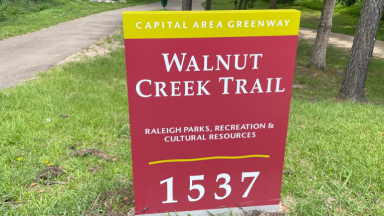Jump To:
Background
The Neighborhood & Community Connections (N&CC) Program is an effort to identify, prioritize, and build new walkable connections to parks and greenways. The N&CC Program was designed to promote health equity throughout the City, using geo-spatial modeling and data analysis to guide investment in those communities which are most at-risk of negative health outcomes and most in need of improved access to outdoor recreation opportunities.
The N&CC projects are funded through the 2014 Parks Bond Referendum and the 2022 Parks Bond Referendum.
Equity and Park Access
The Wake County Community Vulnerability Index was used to equitably prioritize funding of project locations included in the N&CC Program. Prioritizing investments helps ensure that Raleigh’s Parks, Recreation, and Cultural Resources sites, facilities, and programs are accessible to the people who will benefit most from these public resources.
In addition to equity and level of service criteria, the following criteria were also used to determine N&CC project locations:
- Improvement of access in neighborhoods which are more than ½-mile from the nearest greenway access point;
- Proximity of access to transit (including proposed Bus Rapid Transit (BRT) and Transit Overlay District (TOD) areas);
- Overall safety and proximity to existing pedestrian infrastructure;
- Overall feasibility based on existing property rights, construction cost, and permitting requirements.
Projects included in the 2014 Neighborhood and Community Connection Program that have already been completed include Edwards Mill Road to Laurel Hills Park, Ray Road to Lake Lynn Park, Peach Road to Illeagnes Road, N. King Charles Road to Crabtree Creek Trail, Vineyards Community to Walnut Creek Trail, and Industrial Drive to Crabtree Creek Trail. A final connection is being designed that will connect the Crabtree Creek Trail to Carl Sandburg Court near New Bern Avenue.
